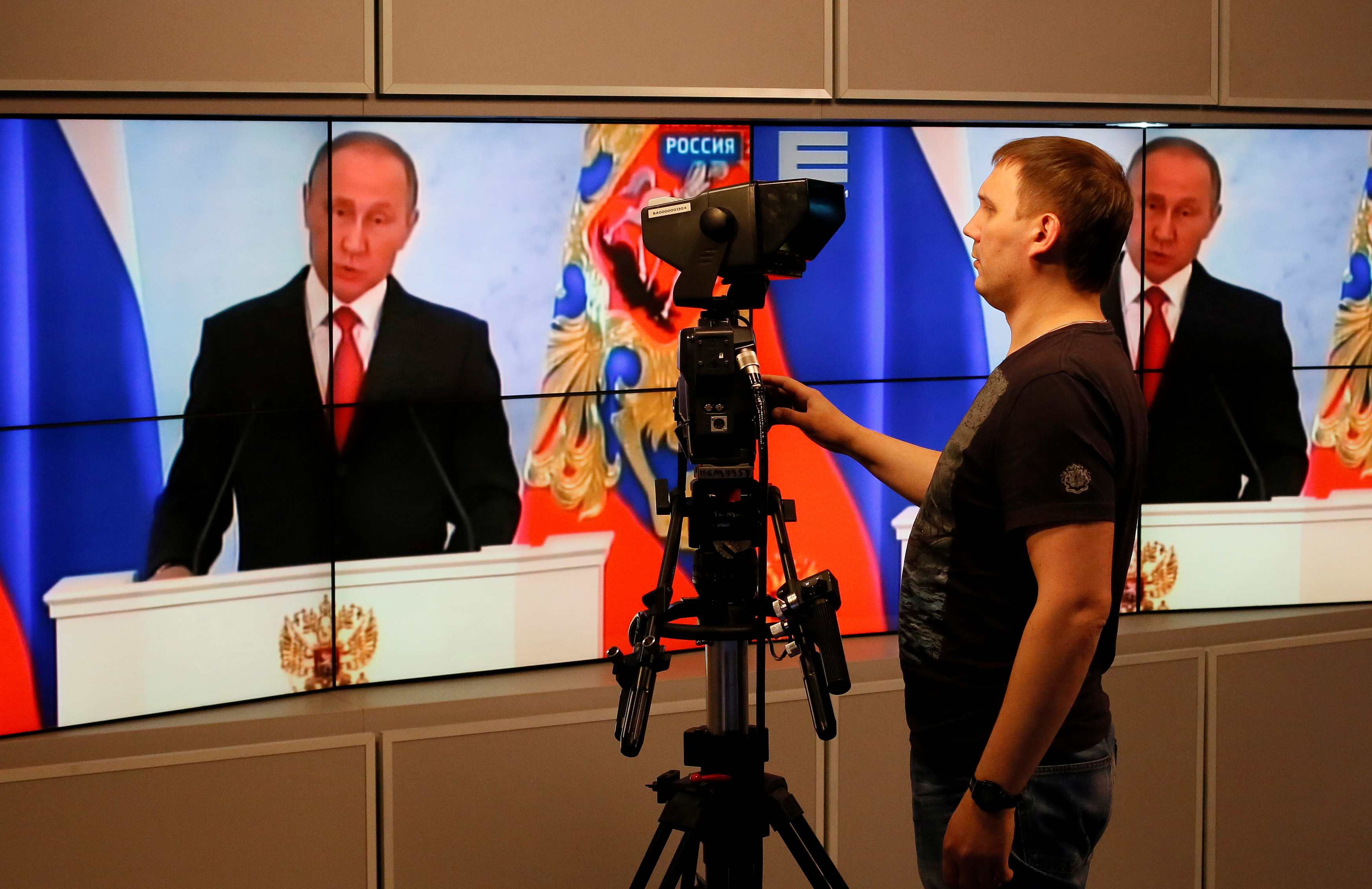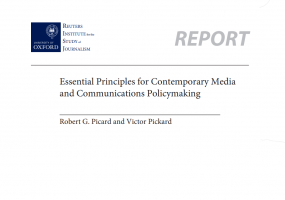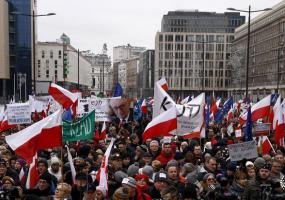Russian TV: Contesting European Values

Reuters Institute Fellow's Paper
Russia has often been accused of conducting an information war against Europe and the West. In her research paper entitled Russian TV: Contesting European Values, Olga Smirnova, a senior journalist at the BBC Russian Service, considers whether the output of Russian TV channels may be interpreted as part of such a disinformation campaign; and if true, she aims to investigate the purposes of such efforts and to quantify them. Here’s how Olga describes her research:
‘My research finds that both the international channel RT (Russia Today) and one of the most popular domestic TV channels in Russia (First Channel - FC) use the migration crisis in Europe to formulate a central message: the ineptitude of incumbent European governments. Three main frames are used to portray the European migration crisis: migrants as a threat, the migration crisis as leading to chaos and protests, and the crisis as revealing the ineffectiveness and weaknesses of the authorities, as well as revealing flaws in the democratic systems of either individual European countries or the EU as a whole.
These three dominant frames do not represent direct and straightforward disinformation. This is not fake news; rather it is a selective presentation of facts, or the presentation of opinion as fact. The techniques that allow the reinforcement of these frames have some commonalities with propaganda messaging, in their repetitive quality, in lacking a variety of opinion and in their emotive style. FC reports contained emotive language more frequently, in 80% of cases, while RT was much more restrained and only 17% of its reports contained such language. Such a difference is explained by the different media and regulatory environment in which RT operates, as well as by different audience expectations.
Order and the absence of chaos emerge as a primary value in Russian TV reports on both channels. The ability of the authorities to preserve stability (as interpreted by Moscow) is viewed as an over-riding priority both internally and externally. The inability of the European authorities to sustain order is portrayed as part of their wider ineptitude. The frames of migrants as posing a threat and what Russian TV portrays as excessive tolerance can be linked to the soft underbelly of European values, tolerance, which is under attack from both right-wing and left-wing forces in Europe. The characterisation of Europe as lacking democracy and as a corrupt place where human rights are violated touches upon core values, over which the West also directs accusations against Russia.’
As with all Fellows’ research papers, any opinions expressed are those of the author and not of the Institute.
Funders







